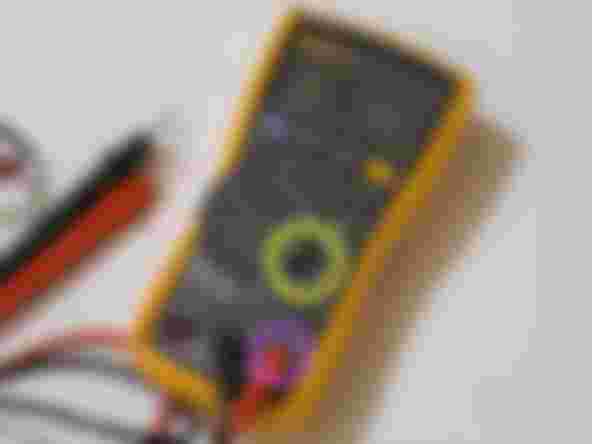5-12-21. N19
Hello, friends of read.cash, here I share some basic knowledge that I learned during my engineering career, but you do not necessarily have to be an engineer to use it. Many times in our daily life we are faced with problems like, my phone does not charge, my cooking pot does not turning on the power indicator, my hairdryer stopped working.
Sometimes people simply discard electronic equipment where the failure is simple, or we go for help from technical personnel who do charge a higher cost for a simple failure and in our ignorance, we pay an abusive price, and sometimes and very important the time we have to wait to solve our problem while waiting for qualified personnel.
I make it clear that to work with electricity, protective measures must be taken, and there are breakdowns that only trained personnel can assume, due to the risks and the deeper knowledge that is needed.
These that I propose are simple tips and very common failures, which you can face without any risk.
There are tools that can be useful and it is always good to have at home, a neon screwdriver, a simple and inexpensive instrument, similar to a screwdriver, that will indicate if there is voltage or voltage just by inserting it into a hole in our outlet. If there is voltage, an indicator light will come on.

The correct way to use this tool is to place the metal tip in the socket that we have problems, and at the same time touch the metal back with the finger, this way the circuit is closed and we can first detect if it is not an electricity problem of the place where we are. Very safe, there is no risk in inserting the instrument, no gloves are needed, you will not be electrocuted.

The second of the instruments that you can have at home is the voltage tester with a multimeter or tester. This will not only indicate the presence of tension, but it will give us the value. This instrument is a little more complex due to the possibilities it offers, so it is vital to know how to use it well, but knowing what to do in these cases is a simple step.
The electricity in our homes is AC Alternating current, and it can be 220v AC or 110v AC, we can see this in the descriptions of our electronic equipment. When the voltage is of another smaller value, and it has DC in the description then we are talking about direct current.
The multimeter gives us the possibility to select what type of voltage we want to measure AC or DC, and the scale to be able to visualize the expected value. Multimeters generally have two tips that will allow us to make the measurement.
If your cell phone does not charge, or your cooking pot does not turn on, or simply after taking your dryer on a trip, it stopped working, just to rule out some possible common causes, since other options would be more complex, and therefore our equipment would have to be taken to an electronics workshop. What I suggest to you does not imply or open the equipment, nor deep knowledge of electronics.
First of all, we check if the outlet where we are putting our equipment has voltage and that it is the required value, for this, we use the neon or the multimeter. We only introduce the neon in one of the holes as I explained before and the multimeter we take both tips and set the type of measurement in AC and the scale we introduce both tips in the holes, one in each hole and on the screen of our equipment. The measurement we will be able to verify if there is not the problem.

Second, and it may be the most common problem, that our power cable is internally broken.
How can we know this? Multimeters give us the ability to measure the continuity of a cable. What is continuity, is the existence of a complete path through which the current flows. They generally have a sound option that sounds when there is continuity and if it does not sound, our cable is broken.

It also allows us to measure the fuses that all devices at home generally have, the fuse in simple words is a protection mechanism that is designed to withstand a permissible range of values and if there is a variation they are short-circuited and prevent further damage. In our equipment, we can find it at the power input of our equipment, but to measure its continuity even though it is simple, we would have to open our equipment. For example, during electrical storms in houses, it is very important to disconnect everything from their plugs because a power surge can damage our equipment.

Let's focus on the cable, to measure its continuity, tap the metal parts of the terminals first to make sure they work. Second, we define how many paths our cable has, if it is a common cable it will have two paths, we take the tips of our multimeter set in continuity mode, and place one at one end of one of the ways and the other end at the other end, so we do with the other way of our cable.
If the multimeter does not sound, it indicates that our cable is broken, we have two options to buy a new one or repair it, which would take other preparations, it always depends on where the cut is. But at least we know that it is something as simple as buying a new cable that is inexpensive, but our equipment is in perfect condition.
But if the multimeter sounds, it indicates that everything is fine with our cable, and then the problem is internal to our equipment, be it a charger, a pot, a laptop, and you would have to go for help from an electronic technician.

Another measurement that we can do is to find a short circuit in our cable and we determine it by measuring continuity between both tracks, if everything is fine the multimeter will not sound, that is, both lines are properly isolated, on the other hand if it emits continuity sound our cable has died.
All images are linked to the source website.
Remember, what I have explained does not imply risks, but other types of electrical measurements do carry more knowledge, and protection measures.
I hope it is useful to you, my dear readers. Thanks for getting here. To my sponsors, thank you for your support.
See you between the lines.








Thank you for this article sis.. Electrical din yung kuya ko kaya marunong siya kumabit ng wire haha